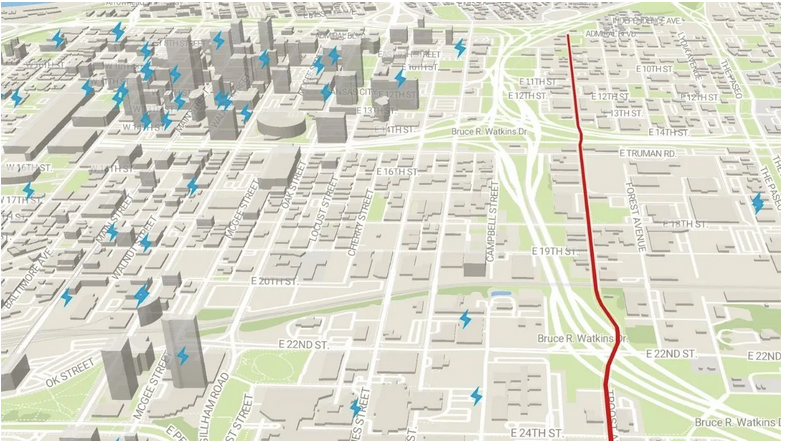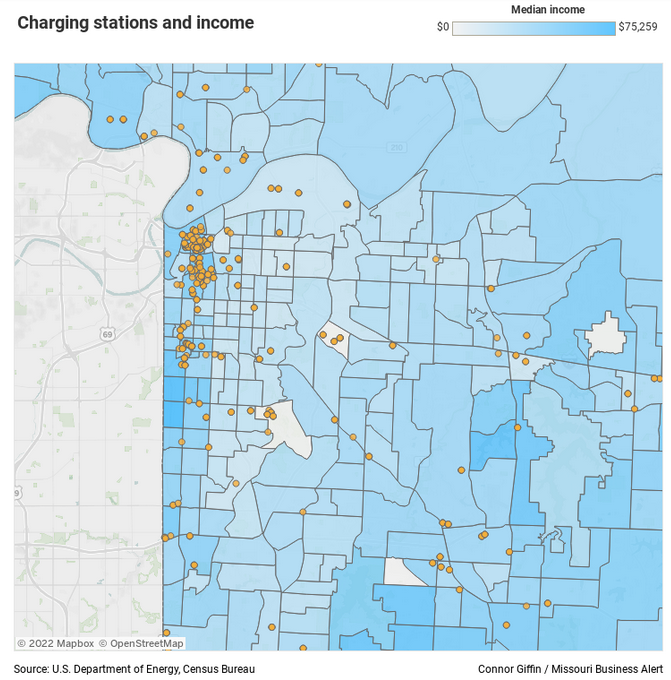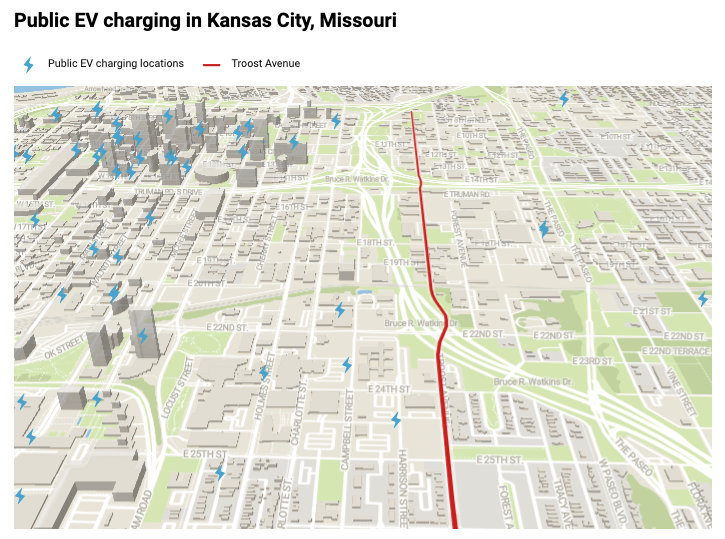
By MEG CUNNINGHAM and CONNOR GIFFIN
Kansas City Beacon
Beto Lugo-Martinez is a grassroots activist who advocates for clean air. A big part of his work is fighting the expansion of “gas guzzling” vehicles and making sure that historically underserved communities receive infrastructure updates, partly to encourage driving an electric vehicle in Kansas City.
Kansas City is no exception to the growing nationwide popularity of electric vehicles, which are known as EVs. As more affordable models hit the market, Lugo-Martinez, the executive director of the nonprofit CleanAirNow, is focused on ensuring equitable access to infrastructure, including charging stations.
“We can just invest and put charging stations everywhere, but if we’re not really worried about investing in communities that are most impacted, we’ll be missing that mark again,” he said.
Missouri was recently ranked seventh in the nation when it came to the number of registered electric vehicle drivers and charging locations, with 6,740 registered electric vehicles across the state and 985 electric vehicle charging stations available.
Evergy, the utility provider for much of the Kansas City metro, has played a role in the installation of many of the area’s electric vehicle charging stations. But the region still has gaps when it comes to electrification.
Census tracts with lower median income often lack public charging options, and the disparity is especially clear on Missouri’s side of the metro. Charging location data from the Department of Energy shows a concentration of stations in the Kansas City’s downtown, financial and Power and Light districts, which are among the city’s most affluent areas, based on Census data.

In the area surrounding the Country Club Plaza, another generally high-income neighborhood, public EV charging stations can often be found only a block away from one another.
Also, public electric vehicle chargers are most often found west of Troost Avenue, which has represented Kansas City’s racial dividing line for decades. East of Troost, home to many of the city’s low-income residents, electric vehicle charging appears more sparse, with only a fraction of the charging station availability that residents to the west enjoy.

Under the federal infrastructure law, Missouri can expect to receive $99 million over five years to support the expansion of EV charging in the state. Another $2.5 billion is set aside for states across the country to apply for grants for EV charging.
Electrification infrastructure created some controversy in the Missouri legislature this year. The House passed a bill that would have prevented local governments from requiring owners of buildings to install EV charging stations, unless the cities or counties were willing to foot the bill. Ultimately the bill didn’t progress to a Senate vote.





